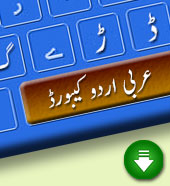Live Makkah
Live Madinah
Urdu Font Download
Latest News:
Padubidri: Fishing boat capsizes; all 7 fishermen on board rescued Alleged atrocity on lawyer: Punjalakatte SI suspended Moral policing at jewellery shop: 4 arrested Bajrang Dal activists try to assault youth, girlfriend in Mangaluru SC to hear Bilkis Bano’s plea against release of 11 convicts on 13 Dec Nusrat Noor: First Muslim Woman to Top Jharkhand Public Service Commission
Latest News:
Padubidri: Fishing boat capsizes; all 7 fishermen on board rescued Alleged atrocity on lawyer: Punjalakatte SI suspended Moral policing at jewellery shop: 4 arrested Bajrang Dal activists try to assault youth, girlfriend in Mangaluru SC to hear Bilkis Bano’s plea against release of 11 convicts on 13 Dec Nusrat Noor: First Muslim Woman to Top Jharkhand Public Service Commission
‘Troubling’: UN Experts Sore Over Police Cases Against Journalists in Kashmir

New Delhi, 15 July 2020 [Fik/News Sources]: Days after a letter on torture in Kashmir, United Nations experts expressed a serious concern over the working conditions of journalists in Kashmir who have been booked under terror laws in May this year. The cases triggered a massive uproar in India and abroad.
The letter released on Sunday was by the United Nation Human Rights Commission’s experts–David Kaye (Special Rapporteur on the promotion and protection of the right to freedom of opinion and expression), Leigh Toomey (Vice-Chair of the Working Group on Arbitrary Detention), Mary Lawlor (Special Rapporteur on the situation of human rights defenders).
Mentioning cases of four journalists, Naseer Ganai, Masrat Zahra, Gowhar Geelani and Peerzada Ashiq, the letter deplored “the criminal proceedings and investigations initiated for what appears to be the four individuals’ journalistic activities on the situation in Jammu and Kashmir.”
The letter was sent to the Indian government on May 12 seeking to know the “measures taken to ensure the right to effective remedies, including the investigation of the alleged violations to the rights of the journalists”.
The letter, however, did not evoke any response from the Indian side. Highlighting the importance of free media, the letter asserted: “A free, uncensored and unhindered press and other media constitute one of the cornerstones of a democratic society.”
In the cases against Kashmiri journalists, the police invoked section 13 of the UAPA and section 505 of the Indian penal Code, alleging incitement to violence in the cases against the scribes. Pointing out the “broad scope” of the laws, the letter says this “makes them easily amenable to abuse.” The letter terms the invoking of these sections as “particularly troubling given the severity of the punishment that anyone charged may suffer.”
The experts raised concern at the “apparent lack of regard by police authorities for the rights of those charged with a criminal offence or subject to investigation.”
In February, Naseer Ganai, who works with Outlook magazine, was summoned to a police station in Srinagar where he was questioned over a story on strike call by the Jammu and Kashmir Liberation Front, which is a banned organisation.
“The two police officers uttered disapproval of the story, and asked Mr. Ganai to refrain from writing such stories in the future,” said the letter recalling the questioning that took place on February 8. “During his stay at the Cargo police station, the police examined the mobile phone and laptop computer of Mr Ganai, and subsequently returned to him.”
On April 18, independent photojournalist Masarat Zahra was summoned to cyber police station but due to covid-19-related restrictions, she could not make it. Two days later, the police issued a press release saying they have invoked UAPA against Zahra on the allegations that she has uploaded incriminating material on social media. The case triggered a massive uproar in India and abroad as media groups came forward to slam the police for charging Zahrat under terror laws.
Peerzada Ashiq, who reports Kashmir for The Hindu, was summoned to the Cyber Police Station Srinagar on April 19. He was questioned about a news report that was published the same day. Later, Ashiq was summoned to the Anantnag police station, 50 km from Srinagar.
“A First Information Report (FIR) was filed against him which stated that details in his news report were “factually incorrect and could cause fear or alarm in the minds of the public.” The letter adds that the copy of the FIR furnished to Peerzada does not mention his name and did not mention the allegations in the FIR.
Two days later on April 21, the cyber police station filed a case invoking section 13 of the UAPA and section 505 of IPC against Gowhar Geelani, a prominent political analyst and journalist. The police alleged Geelani “has been indulging in writings on social media which threaten the territorial integrity of India”.
Geelani filed a petition in the High Court of Jammu & Kashmir in Srinagar on April 24 to quash the FIR issued against him. The court said that “the entire matter is at its infancy stage” and that further investigations were necessary.
In June, the Jammu and Kashmir administration adopted a new media policy that regulates the fake news. The policy will decide on advertisements to newspapers depending on police clearances.
The letter asserts that the laws around fake news should be in line with the 2017 joint declaration on fake news,
disinformation and propaganda which affirrmed that “general prohibitions on the dissemination of information based on vague and ambiguous ideas, including “false news” or “non-objective information”, are incompatible with international standards for restrictions on freedom of expression”.
In April, the global media watchdog, Reporters Without Borders, said India had dropped two spots on the 2020 World Press Freedom Index and was now ranked at 142 in a list of 180 countries.
Prayer Timings
| Fajr | فجر | |
| Dhuhr | الظهر | |
| Asr | أسر | |
| Maghrib | مغرب | |
| Isha | عشا |







